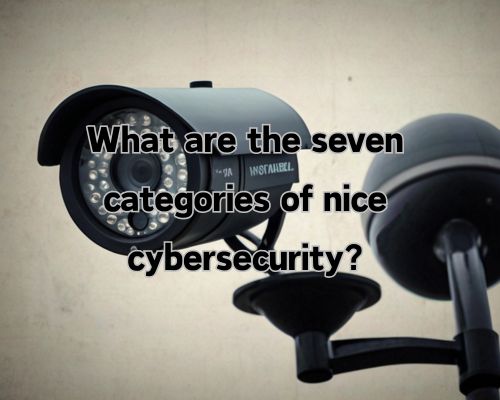What Are the Seven Categories of NIST Cybersecurity? A Comprehensive Guide for West Palm Beach, Florida
In today’s increasingly digital world, ensuring the security of your business or personal information is essential. For residents and businesses in West Palm Beach, Florida, staying ahead of cyber threats is crucial to protecting sensitive data. With Ali Private Investigator Tampa, this article delves into the seven categories of the NIST Cybersecurity Framework (CSF), a gold standard for managing and reducing cybersecurity risks.

Understanding the NIST Cybersecurity Framework
The NIST Cybersecurity Framework provides a structured approach to managing cybersecurity risks. It is widely adopted across industries and government agencies because it simplifies complex cybersecurity concepts into actionable steps. Let’s explore the seven categories that form the backbone of the NIST framework.
1. Identify: Knowing What to Protect
The Identify category focuses on understanding the assets and systems that need protection. In West Palm Beach, businesses ranging from tourism to healthcare rely heavily on data. Identifying assets includes:
- Cataloging hardware and software systems
- Recognizing sensitive data (e.g., customer payment details, health records)
- Assessing potential vulnerabilities
For example, a local medical practice in downtown West Palm Beach might need to identify patient data systems as high-risk assets to comply with HIPAA regulations.
2. Protect: Implementing Safeguards
Once assets are identified, the next step is to protect them. This category involves implementing safeguards to prevent unauthorized access. Key strategies include:
- Regularly updating software and systems
- Encrypting sensitive data
- Conducting employee cybersecurity training
A West Palm Beach-based small business could protect its data by adopting robust firewalls and implementing multi-factor authentication (MFA).
3. Detect: Identifying Threats Quickly
The faster a threat is detected, the easier it is to contain and mitigate. The Detect category emphasizes continuous monitoring and prompt detection of anomalies. Businesses in West Palm Beach can use tools like:
- Intrusion detection systems (IDS)
- Security Information and Event Management (SIEM) software
- Network activity monitoring
For instance, a beachfront hotel could utilize real-time monitoring to detect and block phishing attempts targeting its customer reservation systems. See Ali Private Investigator Tampa for more.
4. Respond: Taking Action When Attacked
No system is foolproof, making an effective response plan critical. The Respond category outlines how to act once a cybersecurity incident occurs. Steps include:
- Activating incident response plans
- Notifying affected parties and authorities
- Containing the breach to prevent further damage
Local governments in Palm Beach County regularly conduct cybersecurity drills to ensure they are ready to respond to potential breaches effectively.
5. Recover: Restoring Operations
Recovery ensures businesses can return to normalcy after a cyber event. In the Recover category, focus is placed on:
- Restoring data from backups
- Updating systems to prevent similar breaches
- Communicating with stakeholders
For example, a West Palm Beach retailer that experiences a ransomware attack may use off-site backups to restore their point-of-sale system, minimizing downtime.
6. Governance: Creating Policies
Governance ensures that cybersecurity is not just an IT concern but a company-wide priority. It includes:
- Setting organizational policies and standards
- Defining roles and responsibilities for cybersecurity management
- Ensuring compliance with local and federal regulations
In West Palm Beach, businesses operating in finance or healthcare must meet strict regulatory standards like PCI DSS or HIPAA.
7. Supply Chain Security: Managing Third-Party Risks
The Supply Chain Security category involves protecting the extended network of third-party vendors and suppliers. Steps include:
- Vetting vendors for cybersecurity practices
- Establishing secure communication channels
- Monitoring third-party access
A West Palm Beach logistics company might ensure its partners use secure systems to prevent data breaches during shipping transactions.
Why the NIST Framework Matters for West Palm Beach
West Palm Beach’s thriving economy is driven by industries such as tourism, healthcare, and retail. However, these sectors are increasingly targeted by cybercriminals. For instance:
- A local boutique hotel could face ransomware attacks threatening guest reservation data.
- A healthcare provider in the area must ensure patient confidentiality in compliance with HIPAA laws.
By adopting the NIST Cybersecurity Framework, West Palm Beach businesses can safeguard sensitive data, maintain customer trust, and protect their reputations.
Local Resources for Cybersecurity in West Palm Beach
If you’re based in West Palm Beach, several resources can help strengthen your cybersecurity posture:
- Local IT Firms: Companies like [Insert Local IT Firm Name] offer tailored NIST implementation services.
- West Palm Beach Cybersecurity Meetups: Networking groups provide valuable insights and best practices.
- Palm Beach County Government Resources: Programs and grants may assist in implementing robust cybersecurity measures.
Conclusion
Cybersecurity is no longer optional—it’s a necessity for businesses and individuals in West Palm Beach, Florida. By understanding and implementing the seven categories of the NIST Cybersecurity Framework, you can protect your digital assets, comply with regulations, and stay one step ahead of cyber threats.
Take action today to secure your systems and ensure a safe, thriving future for your business and community.
Would you like me to tweak or expand on any sections? Let me know! 😊